AUTO STAKEHOLDER
Chase Auto CEO says lender faces headwind from lost Mazda business
Chase Auto CEO Mark O’Donovan says the lender’s auto originations will decline after its private-label agreement with Mazda Motor of America Inc. ends in April 2020.
Mazda announced in August that it is switching to Toyota Financial Services as its partner for consumer auto loans and leasing, ending the more than 10-year agreement with Chase.
The true impact of the end of the Mazda agreement likely won’t be felt until 2023, O’Donovan said. That’s when the Mazda vehicles financed during the arrangement roll off the lender’s balance sheet. Chase will continue servicing the existing Mazda loans and leases in its portfolio and work with dealership clients that use its commercial products, floorplanning and treasury services.
Chase Auto would not disclose the share of Mazda loans and leases in its auto portfolio. In the third quarter, Chase originated $9.1 billion in auto loans and leases and had a total of $83.1 billion in auto volume.
Mazda’s move “was a strategic decision, which I obviously wish would’ve went the other way,” O’Donovan told Automotive News. “But I understand it at the same time.”
Mitigating the loss of its partnership with Mazda is a goal for Chase Auto for the coming year. The lender also aims to reinforce the benefits of its diversified credit businesses to its automaker and dealership clients.
Chase Auto had served as Mazda’s financial arm since 2008. It was the second private-label partnership for the bank after Subaru signed on with the lender in 2001. Chase Auto’s private-label relationships also include Jaguar Land Rover, Maserati and Aston Martin.
Though Chase Auto wouldn’t disclose the share of its portfolio held by the Mazda business, industry sales numbers do show that the departing brand’s volume represents a significant portion of Chase’s private-label opportunity.
Of the 285,148 vehicles that Chase’s private-label partner brands sold in the third quarter, Mazda’s sales of 69,612 vehicles represented nearly one-fourth of the volume.
Lender ties
Automakers seek out and develop captive financing relationships because the partnerships help support vehicle sales and dealer operations in good times and bad, analysts say.
Chase touts its varied business lines as a holistic advantage for automaker clients. The lender’s ability to leverage data and the branding power it commands can amplify automakers’ own marketing efforts, the company has said.
But the dedicated finance arm of an automaker has its own advantages to tout. Doing business with a lender devoted exclusively to the auto business gives automakers a competitive edge, said Maryann Keller, auto industry analyst and principal at Maryann Keller & Associates.
“Mazda is going to have more help,” Keller told Automotive News. Toyota Financial Services is “going to be a more loyal source of credit for them than an independent bank.”
O’Donovan, however, stressed at the Auto Finance Summit last month that its captivelike partnership model, which includes dedicated underwriters, salespeople and marketing efforts for franchised dealerships, can leverage information from its retail banking customers to help automakers find buyers in the market for their vehicles.
Meanwhile, Chase Auto is growing through partnerships with online retailers. A recently announced preferred lending relationship with online used-vehicle retailer Vroom Inc. will bolster Chase’s customer base. The companies said in September that Vroom Financial Services, supported by Chase, will launch next year.
“The idea there is how do we bring those branding, marketing and consumers to work with them to create a better customer experience that’s not pure retail but a more preferred framework overall,” O’Donovan said.
-
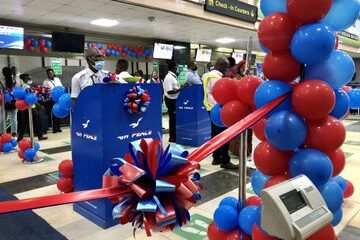
 AVIATION5 years ago
AVIATION5 years agoPhoto News: Air Peace commence flight operations to South Africa
-
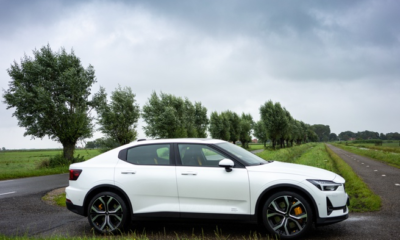
 Car News5 years ago
Car News5 years agoPolestar is recalls over 2000 electric cars due to software bug
-

 RAIL5 years ago
RAIL5 years ago36 Killed in Pakistan Train Accident
-
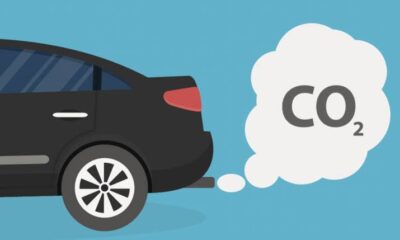
 Technology5 years ago
Technology5 years agoCommon mistakes in CO₂ emissions calculations
-

 Business5 years ago
Business5 years ago2016 Volvo XC60 review and specifications
-

 Reviews5 years ago
Reviews5 years ago2021 Audi A6 Specifications and Review
-
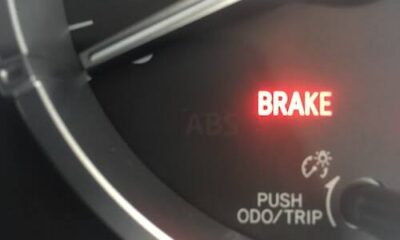
 SAFETY / CAR CARE5 years ago
SAFETY / CAR CARE5 years agoHandbrake warning light; what it means and what to do
-
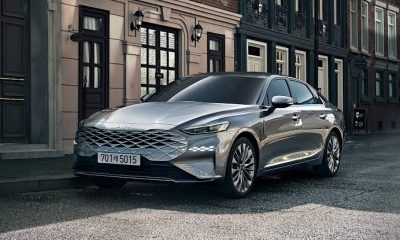
 Reviews3 years ago
Reviews3 years agoDebutant Kia’s new K8 sedan benchmarks luxury, safety
